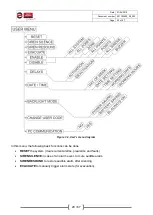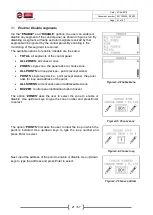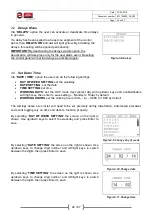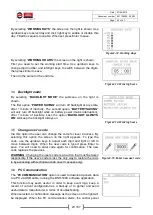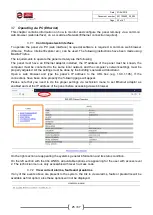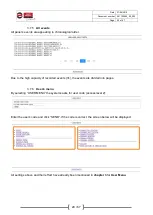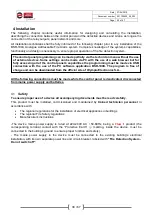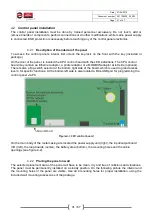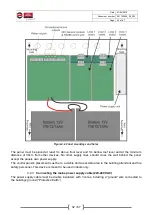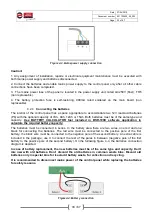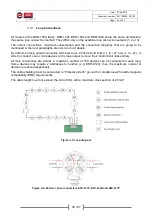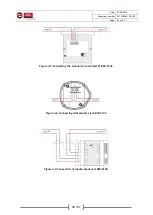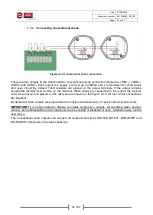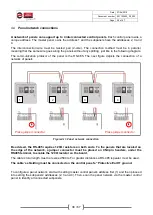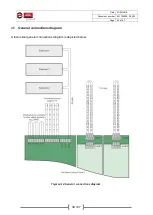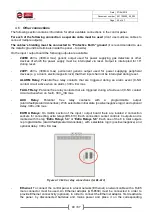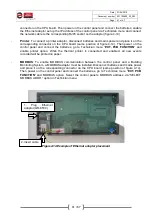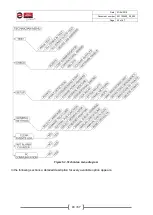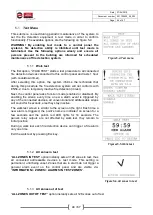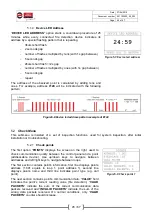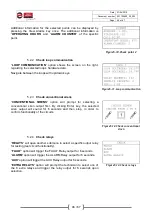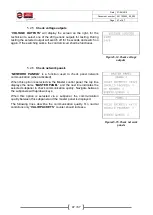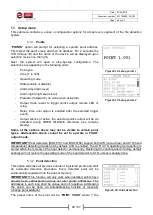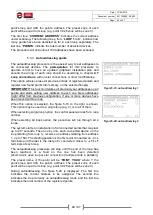
Date
27/06/2019
Document number
921100400_09_002
Page
34 of 67
34 / 67
4.3
Wiring
For compliance with the electromagnetic compatibility (EMC) requirements, the connections of the
peripheral devices to the panel must be done with shielded cables.
Every cable’s shield must be connected to the closest “Protective Earth” ground, to achieve the minimum
electrical distance possible.
All connection wires’ cross section must be between 0,7mm² (min) to 2,5mm² (max).
The maximum loop cable length should not exceed 2000m in total length.
The maximum cable resistance per loop should not exceed 50
Ω when adding total point internal
resistance.
To the upper and back areas inside the control panel, openings are located to pass the cables through.
The rubber plugs must not be removed from the openings so the ingress protection IP30 remains
unchanged (EN 54-2 regulation requirement). Pierce a small hole on the plug to pass the cable trough.
Every connection must use a separate cable with a 2-core shielded cable. These connections refer to:
conventional siren outputs, 24VM output, 24VP output and loop connection te
rminals. Don’t use the
same cable for multiple loops or other outputs.
The connection cables should be approved for fire
detection installations
(i.e. FIP200, MICC and PYROFIL).
The mains power supply input cable should have 3 cores with L-N-PE color coding, rated for 230VAC
(no shielding required).
The data transferring connection wires should be twisted-pair cables and shielded.
The cable cross section for connecting the conventional sirens depends on the consumption and length.
The cross-sections are appearing on the following table.
Table4-1.Conventional siren cable cross-section selection (in Alarm)
Cable length (m)
Alarm Current (mA)
200m
500m
1000m
1500m
2000m
100mA
1.0 mm
2
1.0 mm
2
2.0 mm
2
2.5 mm
2
2.5 mm
2
250mA
1.0 mm
2
1.5 mm
2
2.5 mm
2
2.5 mm
2
2.5 mm
2
300mA
1.5 mm
2
1.5 mm
2
2.5 mm
2
2.5 mm
2
2.5 mm
2
IMPORTANT!
Use the “
LOOP CALCULATOR
” tool Included in the BSR-100X software application
for proper cable selection, prior to installation.

